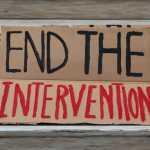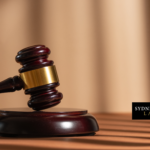Sexual Assault Complaints in New South Wales

If you have been a victim of sexual assault, the thought of reporting it to police can be exceptionally traumatic.
But it’s important to know that police officers are meant to treat complainants with dignity and respect, and to let accusers lead the process, based on how comfortable they are at any time.
Two options for reporting sexual assault
The New South Wales Police Force offers two broad ways to report sexual assault.
The first is by making contact with your local police station as soon as possible after the incident.
This allows you to make a formal complaint. It’s not advisable to just walk into your local branch – it is usually be better to call first. This way, you may have the option of an officer visiting you at your home, and you can also find out about the process. In the event you are called to attend the station, you are permitted to take a support person with you.
Police will usually interview you, asking you to provide as much details as possible about the incident, including information about the perpetrator. Your statement will often form the basis for launching a criminal investigation. Police may seek to gather more evidence before making a decision on whether or not to charge a suspect.
Police can also arrange for counselling and medical support for you. If the assault is recent and you have not had a medical check, police will normally arrange for a SAIK (Sexual Assault Investigation Kit), whereby a trained medical professional will examine you.
If you have gone straight to your doctor or a hospital emergency department, they may be able to can liaise with police on your behalf.
You don’t have to make a formal complaint
If you do not want to make a formal complaint, you can choose to complete a sexual assault questionnaire at your local police station.
As this is not considered a ‘formal complaint’, it will be for police to decide whether to look into the matter further.
Police say there is value in completing the questionnaire because the information is used to gather data which helps develop strategies to combat sexual assault.
The details you provide are recorded on a secure and restricted database, which is kept at the office of the NSW Police Sex Crimes Squad. You can remain anonymous, but police recommend that you provide your details in case a suspect is apprehended sometime in the future and police wish to contact you regarding whether you wish to make a formal statement.
If no person is charged, your information will be stored indefinitely on the database.
After the assault – the first 24 hours
The immediate aftermath of a sexual assault is critical for evidence gathering.
As traumatic as it can be, medical examiners are experienced in dealing with these situations.
They will normally collect swabs and other evidence such as photos. The evidence can help to identify a suspect, and be used as evidence if sexual assault charges are brought.
Going to trial
If the case does go to trial, it’s important to be as emotionally prepared as possible for the courtroom.
You may wish to seek the advice or assistance of police, counsellors or even an experienced lawyer to explain the court process.
Going to trial can re-traumatise complainants, so it’s critical that you have good support.
Mandatory reporting
If a person under the age of 18 reports to a counsellor or doctor that they have been sexually assaulted, then those people have an obligation to report the matter to police.
Police will then investigate the matter, and will also notify the Department of Community Services.
If you have been charged with sexual assault
If you have been accused of sexual assault, it is important to seek expert legal help immediately.
An experienced criminal defence lawyer will help you to understand the allegations, as well as your rights with regard to the investigation and court process.
A specialist criminal lawyer will often be able to have unsubstantiated sexual assault charges withdrawn or mount an effective defence to have the case thrown out of court.
If you have not been charged but have been contacted by police, a good lawyer will be able to protect your rights and could prevent charges being brought against you in the first place.
Consent laws under review
The issue of ‘consent’ is the disputed issue in many sexual assault cases, especially where it is clear sexual intercourse occurred.
Consent laws in New South Wales are currently under review, with the NSW Attorney General calling for laws to make it easier to convict those who are accused.
NSW Minister for the Prevention of Domestic Violence and Sexual Assault, Pru Goward, wants the change to reflect that, “You must explicitly ask for permission to have sex and if it’s not an enthusiastic ‘yes’ then it’s a ‘no’”.







